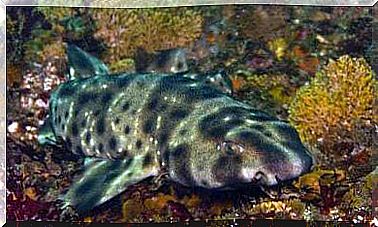The Monkey Who Attacked The King

In 1920 a macaque changed the fate of Greece : the monkey that attacked King Alexander I at his residence in Tatoi would forever change the fate of the country.
Today we will talk about just that: the monkey who attacked the king.
The monkey who attacked the king
Alexander I, third king of the Hellenes, had a short but eventful reign in Europe on the eve of the First World War. But nothing was more insulting than the reason for his death: the Greek king was attacked by a monkey that put an end to his life.
The Gibraltar macaque was a species that was bred as a pet throughout Europe at the time. Remains of this species have been found in places as diverse as Roman Pompeii or prehistoric Ireland, so it is not surprising that the monkey that attacked the Hellenic king was of this species.
In this case, the monkey that attacked King Alexander I was owned by one of his servants. In particular, the farm manager owned several specimens of this monkey species as a pet.

The attack on the monarch
During one of his walks through the palace vineyards there was an accident between one of these macaques and the dog of Alexander I, a German shepherd. When the king tried to separate both animals, another macaque intervened and bit the monarch in the belly and leg.
The monkey that attacked the king was killed along with his companion and Alexander I’s servants cleaned and treated the monarch’s wounds, but it was already too late: the bite wounds become easily infected, and even more so if it comes to animals like the macaque of Gibraltar. The king barely managed to survive a few days and, after two weeks of fever and pain, he died.
What were the consequences of this attack?
To understand what this meant for Greece, it must be remembered that Alexander’s father, Constantine I, remained neutral during the First World War. Despite this, the Hellenic king sided in favor of Germany, while the prime minister took the side of France and Russia.

This led to the formation of a parallel government and, ultimately, the exile of the monarch and his family. However, the triple entente, which had managed to dominate in Greece through the figure of the prime minister, did not want to establish a republic in Greece. Therefore, Alexander I was crowned, but illegitimately, and was the only member of the royal family to remain in Greece.
“The macaque killed a king and 250.ooo Greeks”
During these years Alexander I died, so the exiled monarchs would return to win, including Constantine I, his father. However, the discontent with this situation and the defeat in the war with Turkey forced him to abdicate after only two years. On this occasion Churchill declared that the macaque had killed a king and 250,000 Greeks, referring to the Greek defeat after the return of Constantine I.
Interestingly, the attack on the king of Greece caused a huge stir in this European country. Indeed, the direct consequences of Alexander I’s death were the decline of the monarchy and the loss of the surrounding territories. Who could have thought that a macaque could end an empire?









